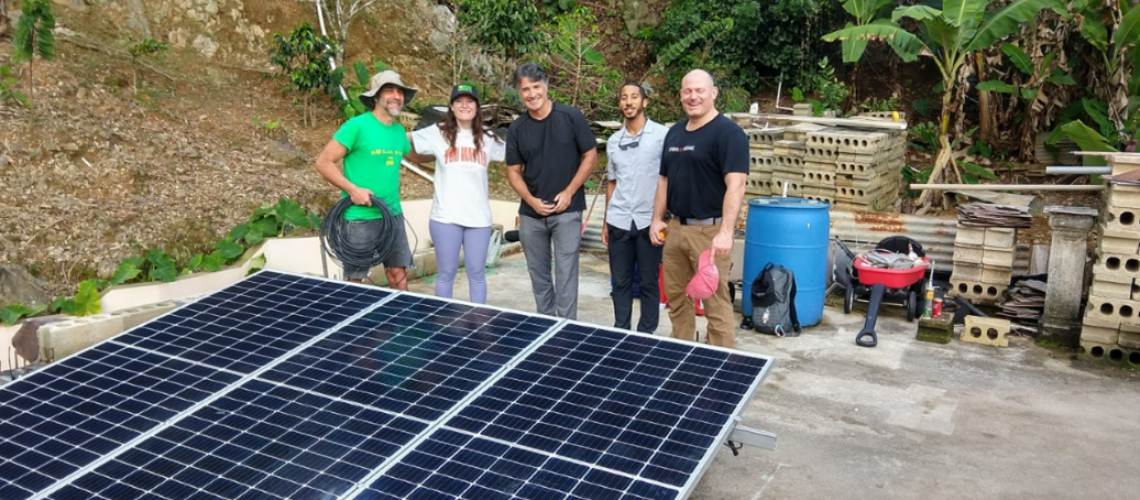Solar Landscape joins non-profit Let’s Share the Sun to provide solar to Puerto Rico community.
On September 18, Hurricane Fiona made landfall on the island of Puerto Rico with maximum sustained winds of 85 mph. More than 20 inches of rain fell, causing flash flooding, triggering mudslides, and leaving much of the island without power. Except, of course, for those with solar power and energy storage, some of which was put into place after Hurricane Maria wreaked havoc five years ago.
Let’s Share the Sun is a non-profit founded in 2010 that has much experience in Puerto Rico, where electrical power was tenuous prior to hurricane devastation. Electricity is also expensive because it’s mostly generated from petroleum that has to be brought from the mainland, so solar not only builds resilience but helps residents with cost of living expenses.
After Hurricane Fiona left island residents without power, Let’s Share the Sun has been joined by Solar Landscape, a New Jersey-based full-service developer, designer, installer, owner, and operator of community solar and solar energy solutions for the commercial/industrial, municipal, public school and non-profit marketplaces. The company employs more than 100 people and has more than 200 MW of solar energy projects completed or under construction.
Solar Landscape is pitching in to help make Puerto Rico become more resilient by donating financial resources, expertise and labor to install solar panels and batteries on homes with critical energy and medical needs.
Solar Landscape chief development officer John Moran has participated in Let’s Share the Sun installation projects in Puerto Rico and has seen the difference that the program has made for residents there. “Let’s Share the Sun and Solar Landscape share a similar mission: to bring the advantages of solar energy to disadvantaged communities,” said Moran. “As we witness the recurring power outages in Puerto Rico, Solar Landscape is proud to help Let’s Share the Sun bring resilient and renewable power to households with health conditions that require them to have uninterrupted access to energy.”



